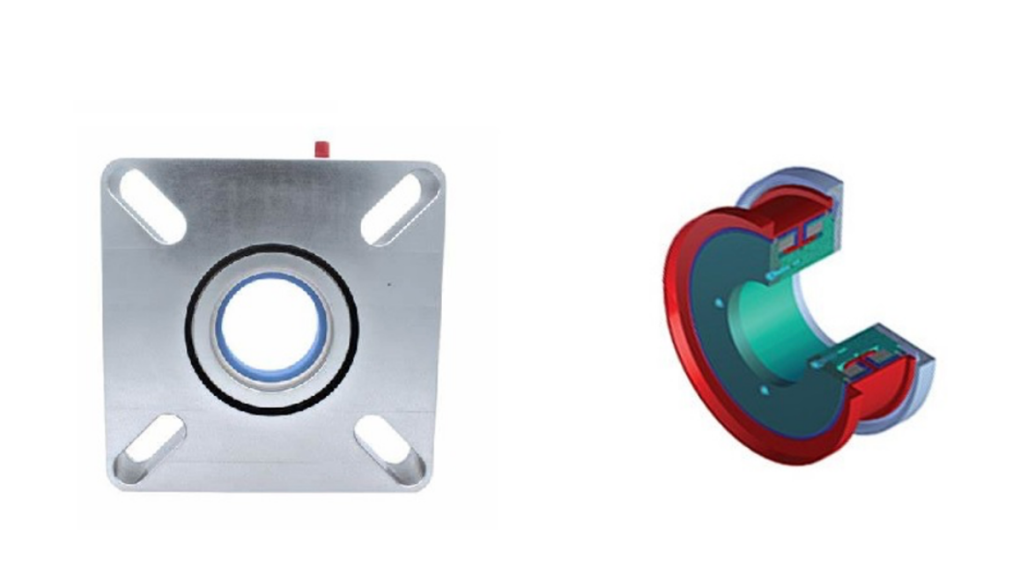Sealants are an essential component of many industrial processes and equipment. They are used to prevent the leakage of fluids or gases, maintain the pressure of systems, and ensure the proper functioning of machinery. This article will discuss two types of sealants offered at HVH Industrial Solutions: CinchSeal Rotary Shaft Seals and CJM Centritec Non Contact Seals.
What are Sealants?
A sealant is a material used to seal a gap between two surfaces to prevent the passage of fluids or gases. These gaps can exist due to imperfections or movement between the surfaces. Sealants are used in various industries such as oil and gas, food processing, pharmaceuticals, and agriculture, among others.
Types of Sealants
Sealants can be classified into different types based on their properties and applications. Some of the common types of sealants are:
Mechanical Sealants
Mechanical sealants are designed to create a physical barrier that prevents substances from passing through. They are typically made of materials like rubber, plastic, or metal and are used to seal gaps between two surfaces. Mechanical sealants are commonly used in the automotive industry to seal engine components and other mechanical parts.
Fluid Sealants
Fluid sealants, also known as liquid sealants, are used to seal joints or gaps that may be difficult to reach with other types of sealants. They are typically applied using a spray gun or other specialized equipment. Fluid sealants can be made from a variety of materials, including silicone, polyurethane, and epoxy. These types of sealants are commonly used in the construction industry to seal gaps in concrete, masonry, and other building materials.
Gasket Sealants
Gasket sealants are designed to create a tight seal between two surfaces that are bolted together. They are typically made from materials like rubber or cork and are used to seal gaps between engine components, exhaust systems, and other mechanical parts. Gasket sealants are commonly used in the automotive industry and are often used in conjunction with mechanical sealants like O-rings and washers.
Bonding Sealants
Bonding sealants, also known as structural adhesives, are designed to bond two surfaces together. They are typically used in applications where a permanent bond is required. Bonding sealants can be made from a variety of materials, including epoxy, acrylic, and polyurethane. Bonding sealants are commonly used in the manufacturing industry to bond components together, but can also be used in other applications like construction and automotive repair.
When choosing a sealant, it is important to consider the specific application and the materials that will be sealed. Different sealants are designed to work with different materials and may not be compatible with all surfaces.
In addition to choosing the right type of sealant, it is also important to properly prepare the surfaces to be sealed. This may involve cleaning and drying the surfaces, removing any old sealant or debris, and ensuring that the surfaces are free from cracks or other defects.
CJM Centritec Non Contact Seals
CJM Centritec Non Contact Seals are high-performance seals that use advanced technology to provide superior sealing capabilities compared to traditional seals. They are designed to be non-contacting, meaning that they do not come into contact with the rotating shaft. Instead, they use a small air gap between the sealing surfaces, which creates an air cushion that reduces friction and wear.
The design of CJM Centritec Non Contact Seals includes a stationary ceramic seal face and a rotating metal seal face. The stationary ceramic seal face has a fine-polished surface that provides an ultra-smooth finish. On the other hand, the rotating metal seal face is designed to be eccentric to the shaft, which ensures that the air gap remains constant as the shaft rotates. The combination of these features ensures that CJM Centritec Non Contact Seals offer high levels of sealing efficiency and durability.
CinchSeal Rotary Shaft Seals
A rotary shaft seal, also known as an oil seal or lip seal, is a mechanical seal that is used to prevent the leakage of lubricants and the ingress of contaminants such as dirt, dust, and water into a rotating machine. A rotary shaft seal typically consists of a sealing lip made of a flexible elastomer or thermoplastic material that contacts the rotating shaft and a metal case that is press-fit into a housing bore. The sealing lip is designed to maintain a thin film of oil or grease on the shaft surface, which provides lubrication and reduces friction and wear
CinchSeal rotary shaft seals are designed to provide superior sealing performance and reliability in a wide range of applications. They feature a unique, patented design that incorporates a stainless-steel rotor and stator with a flexible sealing element made of FDA-approved materials such as silicone, EPDM, and Viton. The rotor and stator form a mechanical seal that rotates with the shaft, while the sealing element remains stationary and makes contact with the shaft surface. This design allows the seal to compensate for shaft runout and misalignment, reducing wear and tear on the seal and the shaft.
In conclusion, sealants play a critical role in ensuring the proper functioning of various industrial processes and equipment. The different types of sealants available in the market, including mechanical, fluid, gasket, and bonding sealants, are designed to cater to specific applications and materials. Among these sealants, CJM Centritec Non Contact Seals and CinchSeal Rotary Shaft Seals stand out for their advanced technology and superior sealing performance

